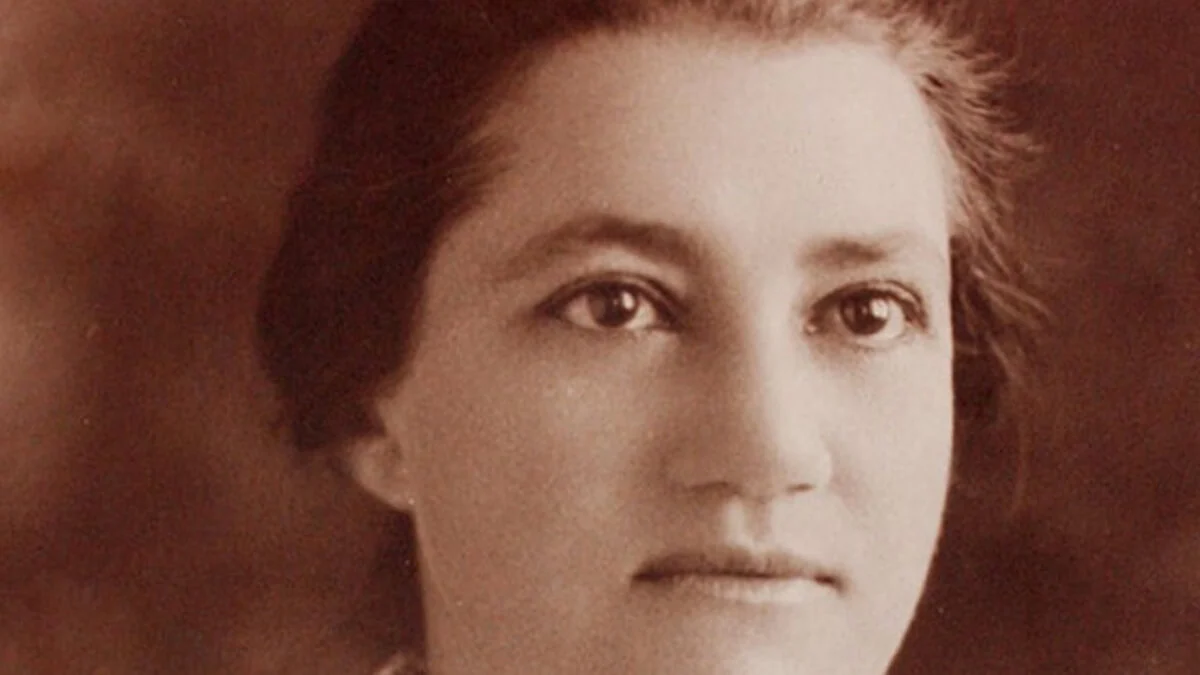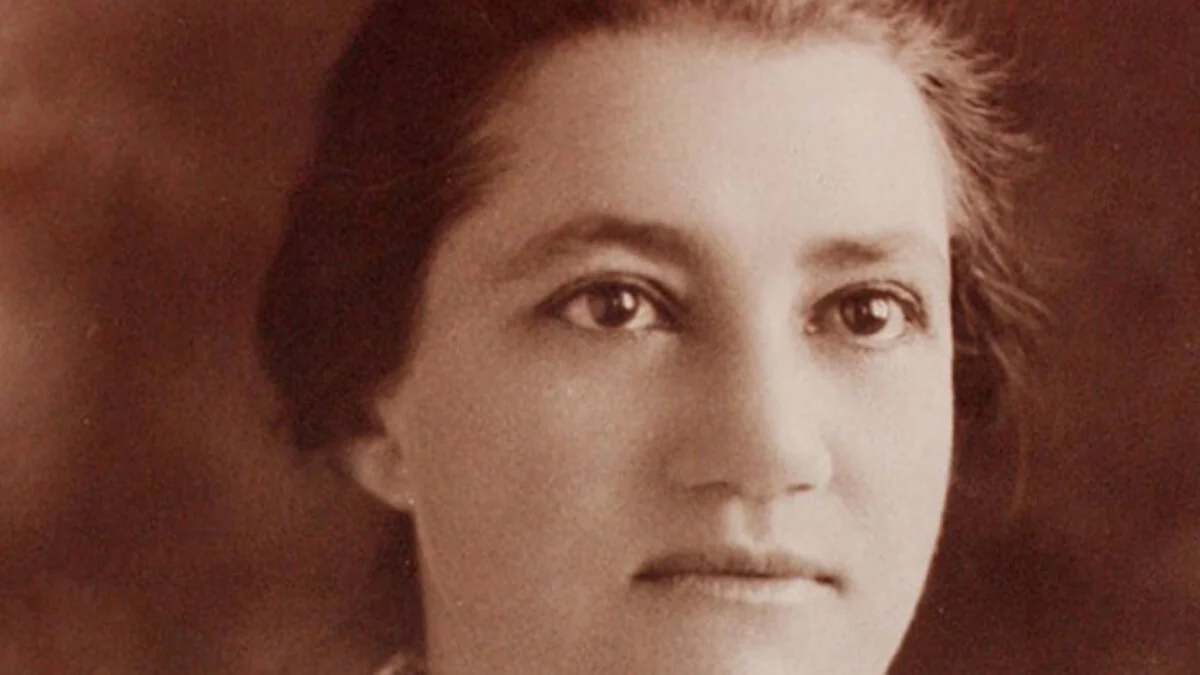Biography de Lucila Gamero de Medina

Lucila Gamero Moncada is one of the first Honduran women writers, she is considered the first Honduran novelist and a pioneer of feminism in the country. She managed to produce a solid and avant-garde literary work for the society and women of her time, in the novel genre.
He was born on June 12, 1873 in the eastern city of Danlí, in the department of El Paraíso, three years before the Liberal Reform of doctor Marco Aurelio Soto began, and on January 23, 1964 in San Pedro Sula. His parents were Dr. Manuel Gamero and Camila Moncada.
He lived for many years in Mexico, the country where he published most of his work. Critic and writer Luis Mariñas Otero called her «the great lady of Honduran letters.»

Biography
Family life
He came from a family that, while not exactly rich, belonged to the upper class. «They had the idea of being descendants of Spaniards,» says Honduran writer Juan Ramón Martínez. That is why Lucila behaves with the dignity and prestige that her family claimed to have.
His brothers were Gilberto Gamero (doctor), Carlos Gamero (musical composer), and José Manuel, better known as Manuel de Adalid Gamero, who until today is considered the father of Honduran music, for his significant contributions to that artistic discipline.
Gamero rode horses, ran a farm and owned a pharmacy. She was branded manly and immoral. In 1898 she married Mr. Gilberto Medina, a wealthy but relatively uneducated man who had been a judge in Danlí.
He had 2 children. Mrs. Aída Cora Medina, widow of Seville, and Mr. Gilberto Gustavo Medina , already deceased. It is said that when he died, he was not given the responso in the church, due to his criticism of the hierarchy. Strangely, his grave does not have a headstone either.
Studies
She was trained as a doctor and pharmacist, and despite the fact that she was prohibited from studying at the University in Guatemala, she studied in Honduras under the direction of her father, where she obtained her diploma as a Physician and Surgeon in 1924 at the National Autonomous University of Honduras. (UNAH) by Dr. Manuel G. Zúñiga, then dean of the Faculty of Medical Sciences. In 1924 she was the director of the Danlí hospital and served as a health consultant also in Danlí.
Feminism
Her feminist and advanced vision made her a misunderstood woman, and she also had to deal with the dissatisfaction of her gender. She wanted to go to Guatemala to study with her brother, since she had a vocation as a doctor, but she had to settle for practicing empirically what she read in her books.
On February 2, 1946, together with a group of suffragettes, they organized the Pan-American Women’s Society and on March 5, 1947, they organized the Honduran Women’s Committee, affiliated with the Inter-American Commission of Women with the aim of obtaining political rights for women and fought for the right of women to vote or suffrage, a fact that could be seen materialized in 1957.
It also published the magazine «Mujer Americana», the third feminist newspaper in the country, after the newspaper Navas de Atlántida and the newspaper Atenea de Cristina Hernández de Gómez printed in Progreso since 1944.
Literary Career
His work is situated between late Romanticism and the Avant-garde, and although it has generally been placed in the American Avant-garde, in reality his work can be more comfortably situated in the last romantic stage of literature, whose embers lasted until the first years of the century. XX.
The abundant literary production occupies the late period of the romanticism of the Latin American novel; love and family are the great themes that occupy most of his narrative arguments. His most popular novel is Blanca Olmedo .
It is not known where he inherited his literary vein, but it is known that since he was young he has dedicated himself to writing. Her first novel was Amalia Montiel, 1895, which she published by chapters in the weekly El Pensamiento, directed by Froylan Turcios in Tegucigalpa, the first literary medium to give space to women.
Lucila corresponded with Turcios and with one of his sister, Rafaela, with whom she seemed to have a great friendship. Gamero also has the honor of publishing the country’s first novel, Adriana y Margarita , 1897, out of a total of seven novels and a book of short stories.
Despite her persistence and ability, in Froylán Turcios’s publication, Gamero appears as a simple collaborator and there is no mention of her novels or any literary criticism. It was a petty attitude that, without a doubt, had to do with the fact that she was a woman.
Her feminist and advanced vision made her a misunderstood woman, and she also had to deal with the dissatisfaction of her gender. She wanted to go to Guatemala to study with her brother, since she had a vocation as a doctor, but she had to settle for practicing empirically what she read in her books.
He was a member of various literary associations in Central America and a member of the Honduran Academy of Language.
Blanca Olmedo
At the beginning of this century, he published his famous novel BLANCA OLMEDO, which has especially made generations of young women cry. A second edition was published in 1933 and a third in 1954 and the most recent was published in 1972. It seems that there have also been clandestine editions.
A great Nicaraguan writer, Don Antonio Medrano, wrote the following about this novel:
«BLANCA OLMEDO». Book intensely lived and felt. Book in which the author has put Soul, Passion, Pain… Book in which Love and Life throb, that pass like meteors, that vanish… Its pages are not read, they are devoured, they are lived, they are felt, and our tears make them immortal. LUCILA GAMERO DE MEDINA is already CONSECRATED BY GLORY.
Literary Work
Lucila Gamero de Medina wrote, among others, the following novels:
- Amelia Montiel (1892)
- Adriana y Margarita (1893)
- Páginas del Corazón (1897)
- Blanca Olmedo (1908)
- Betina (1941)
- Aída, novela regional (1948)
- Amor Exótico (1954)
- La Secretaria (1954)
- El Dolor de Amar (1955)
An important series of analyzes and concepts have emerged from her work that consecrate her, in the words of the historiographer Luis Mariñas Otero, as «the great lady of Honduran letters.»


